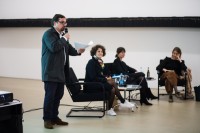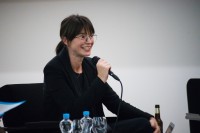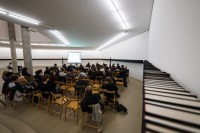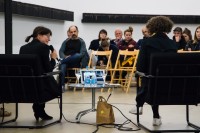02.10.2018, Kunstmuseum Basel | Gegenwart, Basel
The overheated cycle of large-scale art events, which take place and are newly founded at ever closer temporal and geographical intervals, is often described with the term a general "biennialization". On the one hand, this has the potential to shift the former (Western) centers of contemporary art history, to direct visibility and (non-)material resources to non-Western artists, peripheral locations and practices. On the other hand, however, the compulsion of an artistic and curatorial site specificity and factors of site marketing are often mentioned critically in the same breath, and the question is raised whether this amounts to a new form of colonial gesture (aptly described by Simon Sheikh as "the lure of the local, the glamour of the global").
But how do these large, abstract fields of tension influence the concrete scope of action of the individual actors? Can curatorial, artistic, critical forms be found that are neither paralyzed by these problems nor do they lapse into flat world improvement? Can the great curatorial visions and guiding themes of biennials still be meaningfully combined with the increasing ramification of individual exhibitions, venues, and artistic projects? Is "bigger" really "better"? How can personal, aesthetic and political interests formulate their own curatorial stance or a certain "curatorial ethics" (Maura Reilly)? Does this kind of "curatorial activism" also demand new forms of art criticism and audience experience?
Charlotte Laubard (curator of the Swiss Pavilion commissioned by Pro Helvetia for the 2019 Venice Biennale) and Nora Sternfeld (documenta professor at the Kassel Art Academy) discussed these issues.
The eikones discussion series was conceived and moderated by Katharina Brandl and Claire Hoffmann. The discussion was held in English.




